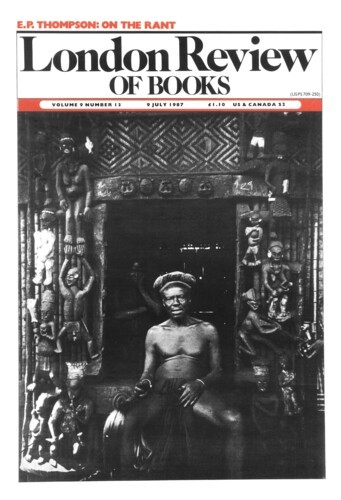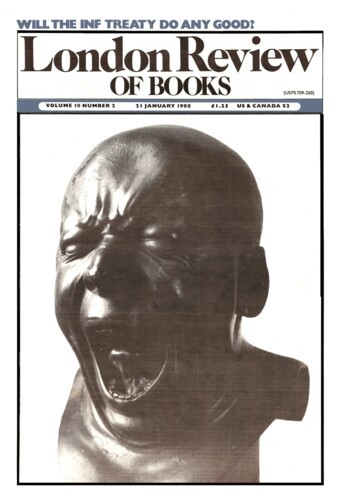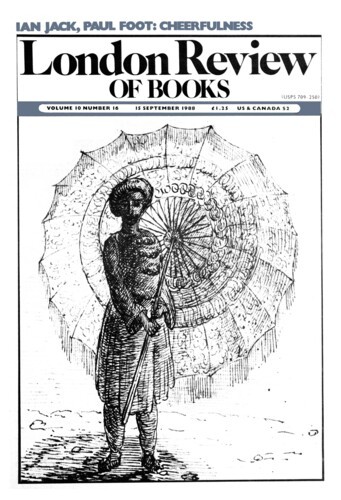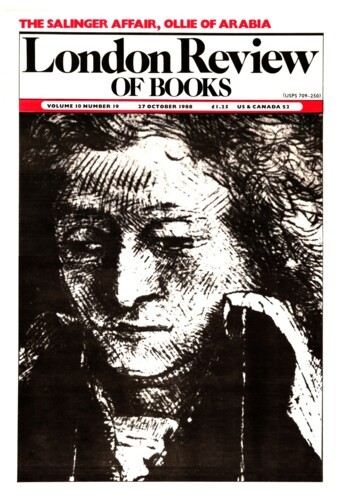Robert Crawford
Robert Crawford was Bishop Wardlaw Professor of Poetry at St Andrews until 2020. He is the author of Young Eliot, Eliot after ‘The Waste Land’, The Bard: Robert Burns, a Biography and Bannockburns: Scottish Independence and Literary Imagination, 1314-2014, as well as several collections of poems, including A Scottish Assembly, Full Volume and Testament.
Poem: ‘The Dalswinton Enlightenment’
Robert Crawford, 21 January 1988
Patrick Miller’s first iron vessel, the world’s First steamship is swanning across Dalswinton Loch. A landscape painter, Alexander Naysmith Perches on deck beside his good friend, Robert Bums.
It’s a calm, clear morning. The painter will later invent The compression rivet, and work out the axial arrangement Between propeller and engine. The poet will write about the light Of...
Ecclefechan and the Stars
Robert Crawford, 21 January 1988
The university discipline we now call ‘English Literature’ is a Scottish invention. Though he had already given his Lectures on Rhetoric and Belies Lettres in Edinburgh, it was at Glasgow University in 1751 that Adam Smith became the first person to give an official university course in English that dealt with the technique and appreciation of modern writers in that language as...
Two Poems
Robert Crawford, 15 September 1988
Throw all your stagey chandeliers in wheelbarrows and move them north To celebrate my mother’s sewing-machine And her beneath an eighty watt bulb, pedalling Iambs on an antique metal footplate Powering the needle through its regular lines, Doing her work. To me as a young boy That was her typewriter. I’d watch Her hands and feet in unison, or read Between her calves the...
Poem: ‘Robert Crawford’
Robert Crawford, 27 October 1988
You’re interrupted in the book of the film By someone ringing who’s just seen your name
As the title of an opera. You remember that doctor in Mallaig Born long before Disney and baptised Donald Duck.
What could he have felt? Normality’s strange – Always more of it gets delivered in cartons
With the names washed off. Maybe next century We’ll have extra labels: a...
Pieces about Robert Crawford in the LRB
Things Ill-Done and Undone: T.S. Eliot’s Alibis
Helen Thaventhiran, 8 September 2022
Sounding out phrases in letters as well as in verse kept things going for T.S. Eliot: he needed a low level of compositional hum. Like a secular spiritual exercise, the letters to Emily Hale sustained...
Smiles Better: Glasgow v. Edinburgh
Andrew O’Hagan, 23 May 2013
Can places, like people, have a personality, a set of things you can love or not love? Do countries speak? Do lakes and mountains offer a guide to living? Could you feel let down by a city? Can...
How Does It Add Up? The Burns Cult
Neal Ascherson, 12 March 2009
The late Bernard Crick, who had a fine and memorable funeral in Edinburgh the other day, left a legacy of sharp opinions behind him. Among the least popular was his opinion of the British...
Drinking and Spewing: The Variousness of Robert Fergusson
Sally Mapstone, 25 September 2003
Robert Fergusson died in Edinburgh’s Bedlam on 17 October 1774. He was 24 years old. He had been admitted to the asylum three months before, against his will, because his mother could no...
Colloquially Speaking: poetry from Britain and Ireland after 1945
Patrick McGuinness, 1 April 1999
Anthologies are powerful things: movements are launched, periods are parcelled up, writers are made and broken. They are, or want to be, the book world’s performative utterances: defining...
Dr Blair, the Leavis of the North: English in Scotland
Terence Hawkes, 18 February 1999
Until recently, the notion that the academic subject called ‘English’ had any sort of history would have seemed rather odd. Hadn’t it always just, well, existed? Surely, at his...
Scots wha hae gone to England
Donald Davie, 9 July 1992
In books that go on about how the English have imposed their language and their manners on other English-speaking nations (Australian, Canadian, Scottish and Welsh and Irish, others), what is...
Two Americas and a Scotland
Nicholas Everett, 27 September 1990
Whether in person or in print, self-consciousness is unsettling. Self-conscious writers, like self-conscious speakers, can’t help betraying that they’re more concerned with their...
Feast of St Thomas
Frank Kermode, 29 September 1988
‘The idea that Eliot’s poetry was rooted in private aspects of his life has now been accepted,’ says Lyndall Gordon in the Foreword to her second volume of biographical rooting...
Read anywhere with the London Review of Books app, available now from the App Store for Apple devices, Google Play for Android devices and Amazon for your Kindle Fire.
Sign up to our newsletter
For highlights from the latest issue, our archive and the blog, as well as news, events and exclusive promotions.




